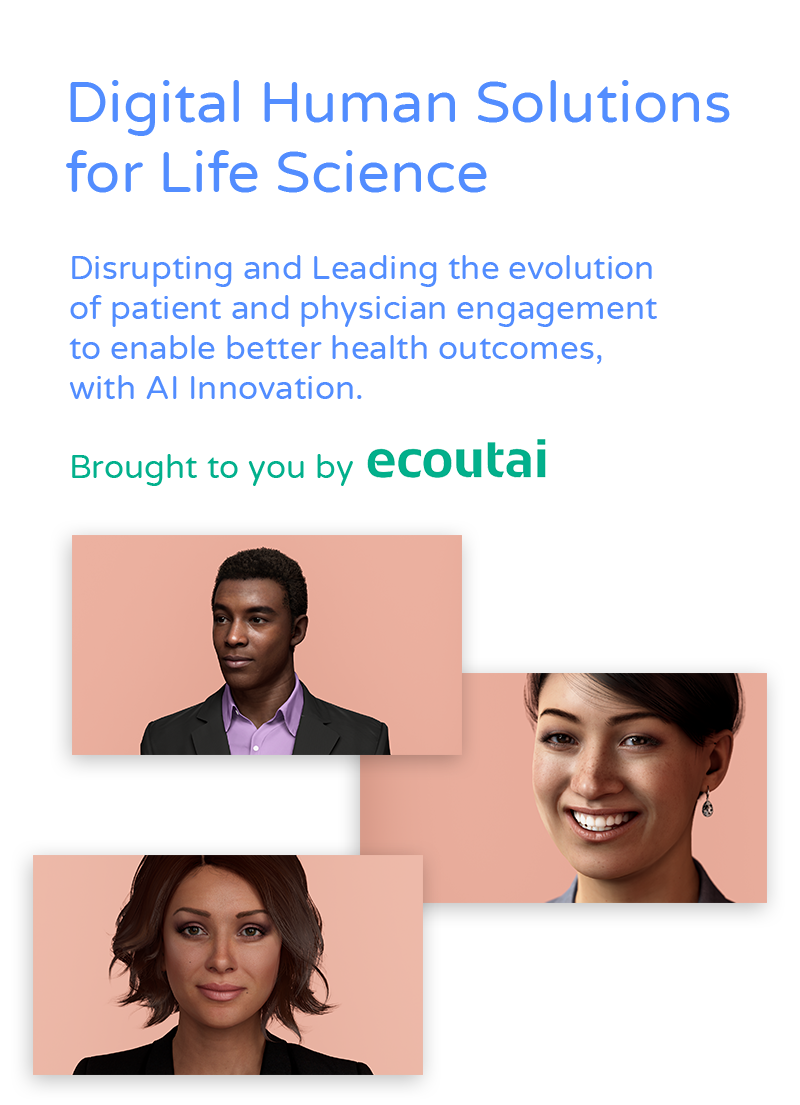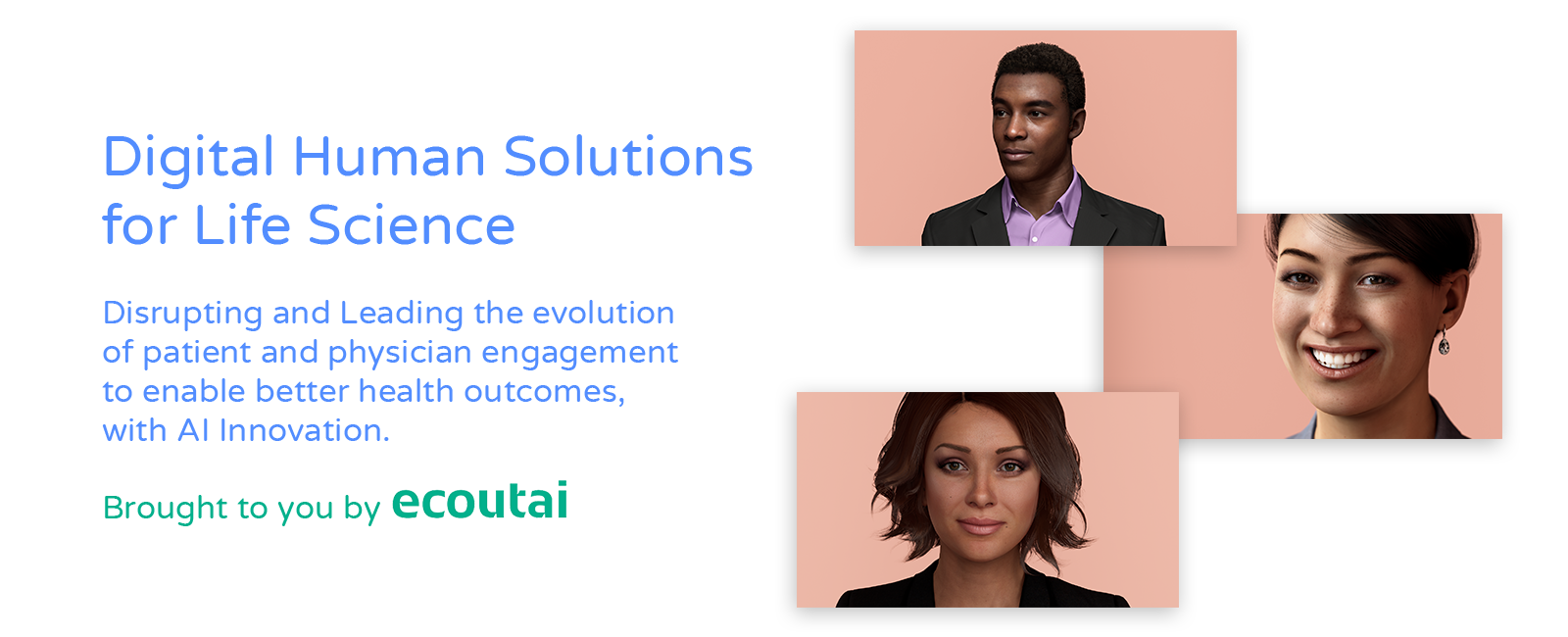Vartelus, Innovative Disruption for Better Health Outcomes.
Vartelus combines the latest and leading Digital Human and Conversational AI Technologies from AWS, Microsoft, Google and more, specifically designed for the life science industry; it is set to lead the evolution of patient and physician engagement, driving better health outcomes.
Our technology is leading the evolution of healthcare professional (HCP) and patient engagement by combining medically approved information, qualified real-life experience, and brand strategies to provide HCPs and patients with on-demand 100% compliant, consistent, and unlimited conversation and information, 24/7.
Vartelus is designed to give HCPs confidence in prescribing medications, and to support patients in combatting non-compliance, resulting in better patient outcomes and increased market share for pharma companies.
What's more, Vartelus is designed to augment human roles and we believe will ultimately protect jobs.
“Some challenges haven't changed!”
A challenging introduction by Graham Wilson, Chairman of Ecoutai Limited
It’s 37 years since, as a founder of Innovex [Quintiles] we disrupted the industry, yet I still hear the same industry challenges and read about the same regurgitated solutions – we’re still not evolving fast enough!
Having just lost access to 50% of the HCP audience who won't see pharma reps post the Covid-19 era, plus reducing sales teams and low contact rates, the industry is struggling to maintain and increase sales and market share. Yet they still seem to do more of the same with less people. Ineffective omnichannel strategies, that everyone uses, simply drown HCPs with a multitude of information that is just too much for HCP's!
Let’s also consider patient noncompliance, which costs the global pharma industry around $630bn a year, the NHS around £800M, and the USA health systems around $250bn. We call it the forever problem it's been around so long so WHY has this not been addressed? When trying to sell more is harder, change the model, and consider the increase in lifetime brand value by improving compliance. With technology we can address this.
This lack of innovation is just making it harder for everyone and by the time it doesn't deliver, the problem is even bigger. So, let's look differently at the problem, and explore a better way to grow your business, and protect people and reinvestment in future development. Stand out from the crowd!
With technology we change that for the good of all…
Best wishes,
Graham.
The Forever Problems
Non-Compliance
Is a global issue
50% of patients don’t complete prescribed drug courses or take them properly
Time Constraints
Doctors don’t have the time to educate patients
6 minutes with a doctor doesn’t change behaviour
Poor compliance = Poor outcomes
The Cost?
Non-compliance costs pharma $630bn per annum
Non-compliance costs the NHS £500–800m and US health systems $250bn per annum.
Competition
Competition for sales is high,
a doctor has over
3,000 drug choices
Introducing Rebecca
Read our blog








